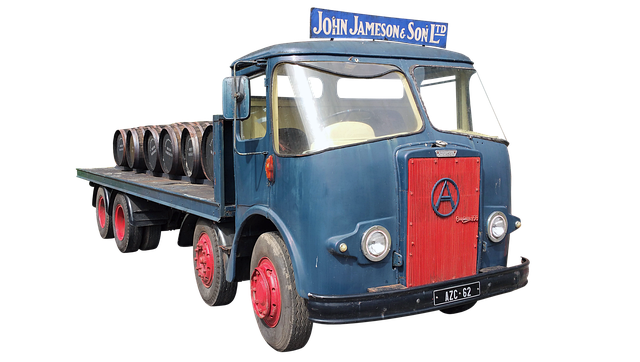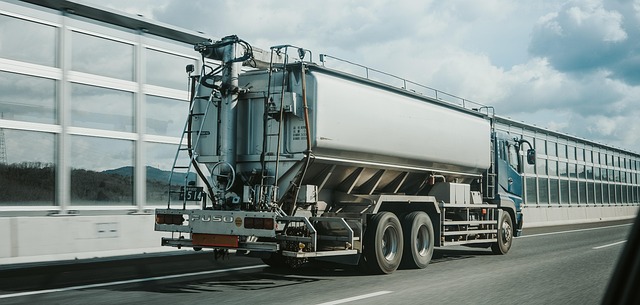Managing insurance for new trucking businesses is a complex task requiring dynamic solutions. With expanding fleets and changing regulations, staying current with policy renewals and risk assessments is crucial. Digital technology streamlines processes, automates tasks like data entry and policy management, ensures compliance, minimizes errors, and offers real-time updates. Integrating these innovations provides new trucking businesses with a competitive edge, cost savings, and efficient operations, enabling them to focus on their core mission: safe and timely transportation.
“In the fast-paced world of trucking, efficient insurance management is key. ‘Integrating Technology to Streamline Insurance Tracking and Renewals’ explores the digital revolution transforming how trucking businesses handle their insurance. From navigating complex renewal processes to ensuring comprehensive coverage for new trucking business ventures, technology offers solutions.
This article delves into the challenges faced by trucking operations, showcases how technology can optimize these tasks, and provides insights on implementing digital tools for better risk management, ultimately enhancing operational efficiency.”
Understanding the Challenges of Insurance Tracking and Renewals for Trucking Businesses

For trucking businesses, managing insurance tracking and renewals can be a complex task. The process involves juggling multiple policies, understanding ever-changing regulations, and ensuring compliance while keeping operations running smoothly. With each new truck or trailer added to the fleet, there’s a need for updated coverage, reflecting specific risks associated with different vehicles and cargoes. This complexity intensifies when considering the dynamic nature of insurance markets, where rates and terms can vary widely between providers.
Moreover, staying on top of renewal dates is crucial to avoid costly interruptions in coverage. A single missed deadline could leave a trucking operation vulnerable during critical periods, such as peak seasons or while expanding services. The challenge lies in implementing an efficient system that adapts to these complexities, allowing businesses to focus on their core mission—ensuring safe and timely transportation while minimizing administrative burdens.
The Role of Technology in Streamlining Processes: A Comprehensive Overview

In today’s digital era, technology plays a pivotal role in revolutionizing the way insurance tracking and renewals are managed, especially for new trucking businesses seeking comprehensive coverage. By integrating innovative solutions, such as specialized software platforms and automated data systems, insurers can significantly streamline processes that were once cumbersome and time-consuming. These technologies enable efficient capture and storage of policyholder information, seamless tracking of coverage details, and automatic renewal reminders, ensuring no precious deadlines are missed.
For instance, digital platforms facilitate real-time updates on policy changes, allowing trucking businesses to quickly adapt to evolving insurance requirements. This not only enhances operational efficiency but also improves customer satisfaction by providing a transparent and convenient experience. Additionally, automated data systems minimize errors associated with manual data entry, enhancing accuracy in tracking new trucking business coverage and related renewals.
Implementing Digital Solutions for New Trucking Business Coverage

In the fast-paced world of trucking, a new business’s survival hinges on efficient operations and adaptable practices. Implementing digital solutions for their insurance tracking and renewals is a strategic move that can significantly streamline their processes. By embracing technology, newcomers to the trucking industry can automate tasks like policy management, ensuring compliance and minimizing errors. This approach allows them to focus on core activities, enhancing overall competitiveness in a dynamic market.
Digital platforms offer real-time updates, making it effortless for new trucking businesses to monitor their coverage, receive reminders for upcoming renewals, and swiftly address any policy changes required by regulatory bodies. Such advancements not only save time but also contribute to cost savings, providing these entrepreneurs with a competitive edge as they establish themselves in the industry.
Benefits, Best Practices, and Future Trends in Insuring Commercial Vehicles with Tech Integration

Integrating technology into insurance tracking and renewals for commercial vehicles offers numerous benefits, especially for new trucking businesses looking to streamline operations and reduce costs. Firstly, it automates data collection, eliminating manual effort and minimizing errors. This results in faster and more accurate policy assessments, allowing insurers to provide tailored coverage options based on real-time insights. Secondly, advanced analytics enabled by tech integration can predict risk profiles more precisely, leading to fairer pricing structures for truckers.
Best practices involve leveraging telematics devices for data collection, ensuring secure cloud storage for seamless access, and implementing user-friendly digital platforms for policy management. Additionally, integrating AI chatbots for customer support enhances the overall experience. Looking ahead, future trends suggest expanding into autonomous vehicle insurance, utilizing blockchain for transparent claims processing, and employing IoT sensors to monitor driving behavior in real time, paving the way for more dynamic risk assessments and coverage adjustments.
Integrating technology into insurance tracking and renewals for trucking businesses offers a promising future. By adopting digital solutions, such as automated data management, real-time policy updates, and seamless communication channels, new trucking businesses can significantly streamline their operations. This not only enhances efficiency but also improves risk management, ensuring compliance with changing regulations. As technology continues to evolve, embracing innovative practices will be key to staying competitive in the trucking industry, ultimately benefiting both businesses and their clients through enhanced coverage options and streamlined processes.
